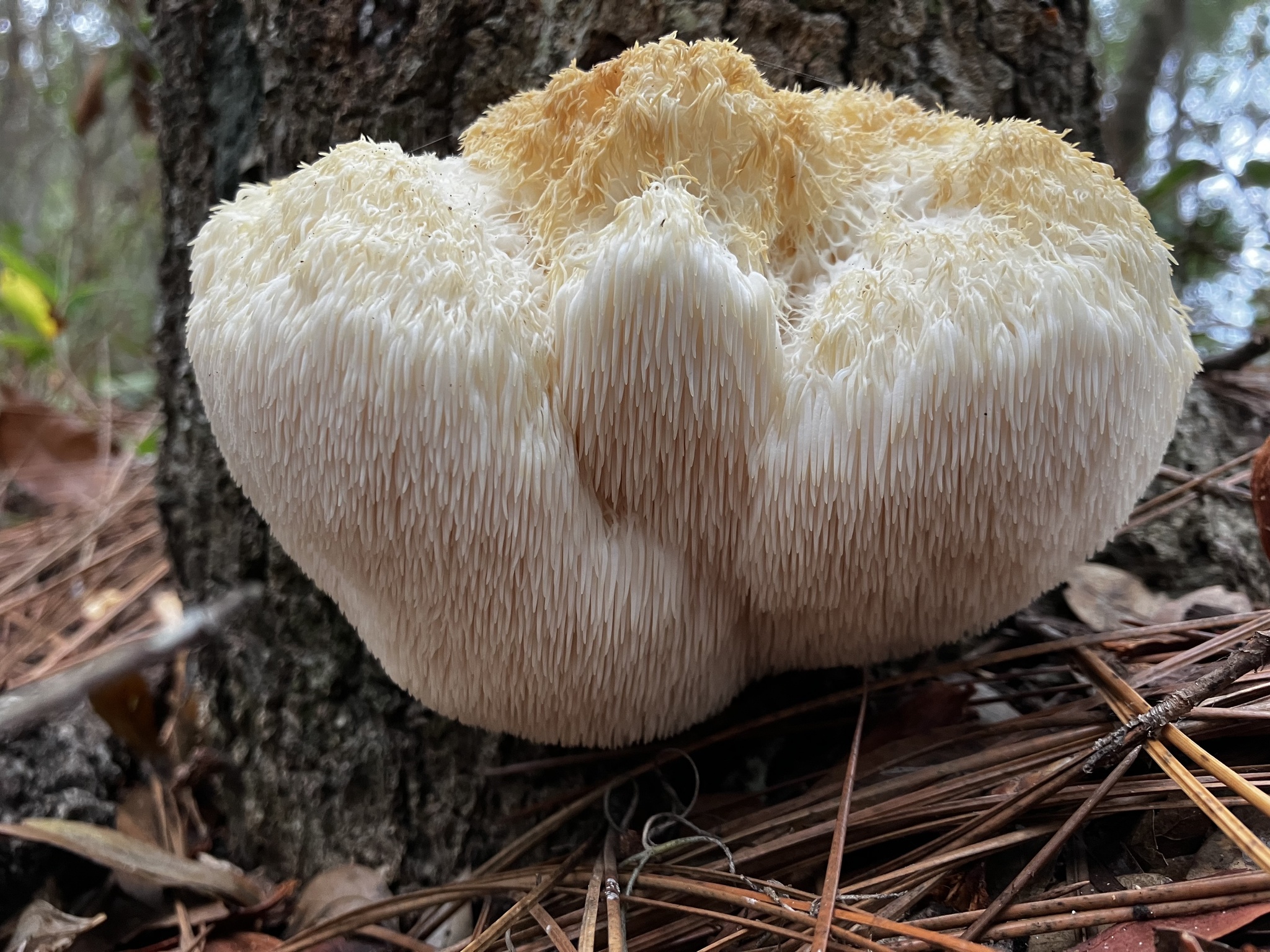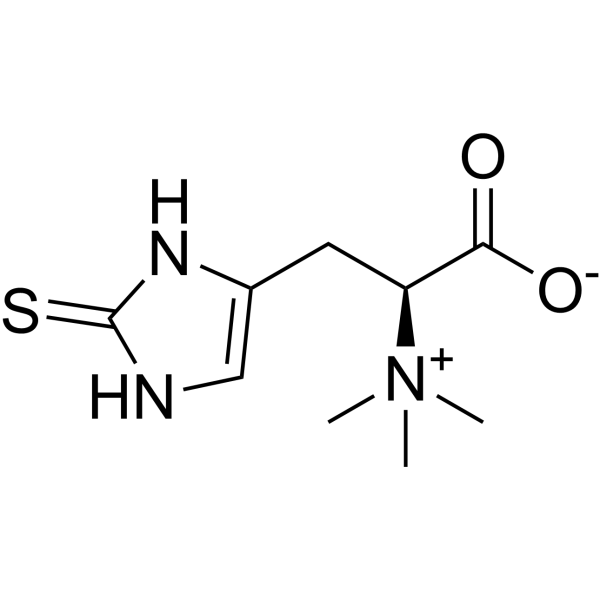Ergothioneine: A Novel Vitamin?
What makes ergothioneine particularly intriguing is its scarcity in modern diets and its potential to act as a critical nutrient. While small amounts can be found in plant and animal-based foods, mushrooms and other fungal foods provide the richest natural sources by far (see the table below). This dietary disparity has led some scientists to suggest that ergothioneine’s essential roles in cellular protection and repair, combined with its limited availability, may qualify it as a “longevity vitamin.” Much like traditional vitamins prevent deficiency diseases, ergothioneine appears to protect against oxidative stress and inflammation, which are underlying factors in aging and chronic diseases such as dementia and cardiovascular conditions.
Preliminary studies have revealed exciting possibilities. Research links higher levels of ergothioneine in the blood to better cognitive health, reduced inflammation, and lower risks of chronic diseases (Paul & Snyder, 2010; Cheah et al., 2017). As research progresses, ergothioneine is emerging as a compound with profound implications for aging, brain health, and chronic disease prevention. The following sections will delve deeper into its unique mechanisms, clinical findings, and why it might be considered a cornerstone of future health strategies—perhaps even earning its place alongside essential vitamins.
| Rank | Food Item | Food Group | Ergothioneine Content | Unit (mg/100 g DW) |
| 1 | King Bolete (Boletus edulis) | Mushrooms | 181.24 | mg/100 g DW |
| 2 | King Oyster | Mushrooms | 54.17 | mg/100 g DW |
| 3 | Buna Shimeji | Mushrooms | 43.26 | mg/100 g DW |
| 4 | Shiitake | Mushrooms | 35.35 | mg/100 g DW |
| 5 | Enoki | Mushrooms | 34.64 | mg/100 g DW |
| 6 | Tempeh | Milk and Soy Products | 20.11 | mg/100 g DW |
| 7 | Portobello | Mushrooms | 19.09 | mg/100 g DW |
| 8 | Asparagus (Mexico) | Vegetables | 16.33 | mg/100 g DW |
| 9 | White button | Mushrooms | 15.44 | mg/100 g DW |
| 10 | Garlic | Vegetables | 3.46 | mg/100 g DW |
| 11 | Asparagus (White) | Vegetables | 1.82 | mg/100 g DW |
| 12 | Basil leaf | Nuts, Beans, and Spices | 0.49 | mg/100 g DW |
| 13 | Kidney beans | Nuts, Beans, and Spices | 0.21 | mg/100 g DW |
| 14 | Pistachio nut | Nuts, Beans, and Spices | 0.19 | mg/100 g DW |
| 15 | Almond | Nuts, Beans, and Spices | 0.19 | mg/100 g DW |
| 16 | Soy milk | Milk and Soy Products | 0.23 | mg/100 g DW |
| 17 | Fresh milk | Milk and Soy Products | 0.025 | mg/100 g DW |
| 18 | Broccoli | Vegetables | 0.038 | mg/100 g DW |
| 19 | Tomato | Vegetables | 0.020 | mg/100 g DW |
Source: Data compiled and adapted from Halliwell, B., Cheah, I. K., & Tang, R. M. Y. (2018). Ergothioneine: A diet-derived antioxidant with therapeutic potential. FEBS Letters, 592(20), 3357-3366. https://doi.org/10.1002/1873-3468.13123【37†source】.
What Does the Research Show?
Brain and Cognitive Health
Ergothioneine has been linked to improved brain health and reduced risk of neurodegeneration. A 2022 study found that low levels of ergothioneine in the blood predicted faster cognitive decline in elderly individuals, making it a potential biomarker for diseases like Alzheimer’s (Wu et al., 2022). In a 2024 clinical trial, mild cognitive impairment patients who received ergothioneine supplementation showed improved memory and learning, along with stabilization of markers indicating neuronal damage (Yau et al., 2024).
Anti-Inflammatory and Pain-Relief Effects
In a 2012 trial, participants who consumed an ergothioneine-containing supplement experienced reduced joint pain and improved mobility within six weeks. These findings highlight its anti-inflammatory potential (Benson et al., 2012).
Cardiovascular Protection
Observational studies have associated higher levels of ergothioneine with reduced oxidative stress and inflammation, two key factors in cardiovascular disease (Sotgia et al., 2014). Preclinical studies suggest that ergothioneine can help protect cells from damage caused by cholesterol oxidation and free radicals (Cheah et al., 2017).
Bioavailability and Safety
In 2017, a study demonstrated that ergothioneine is highly bioavailable and effectively retained in the body, even after oral supplementation. Importantly, no toxic effects were observed, confirming its safety for long-term use (Cheah et al., 2017).
| Year | Species | Study Name | Participants | Fungal-Derived Treatment | |
|---|---|---|---|---|---|
| 2011 | (specific compound) | The Bioavailability of Ergothioneine from Mushrooms and Effects on Antioxidant Capacity and Inflammation | 10 | Ergothioneine | 8g or 16g mushroom powder |
| 2012 | (specific compound) | Improvement of Joint ROM and Reduction of Chronic Pain with Ergothioneine-Containing Supplement | 12 | Ergothioneine | Unspecified |
| 2014 | (specific compound) | Clinical and Biochemical Correlates of Serum L-Ergothioneine | 439 | Ergothioneine | Observational study (no supplementation) |
| 2017 | (specific compound) | Administration of Pure Ergothioneine to Healthy Subjects | 47 | Ergothioneine | 5 mg and 25 mg daily |
| 2022 | (specific compound) | Low Plasma Ergothioneine Predicts Cognitive and Functional Decline in the Elderly | 470 | Ergothioneine | Observational study (no supplementation) |
| 2024 | (specific compound) | Investigating Ergothioneine to Delay Cognitive Decline in Mild Cognitively Impaired Subjects | 19 | Ergothioneine | 25 mg 3 times per week |
Why Is Ergothioneine Important?
Oxidative stress and inflammation are at the root of many chronic diseases and the aging process itself. Ergothioneine’s ability to target and protect vulnerable tissues makes it a unique and powerful compound in promoting long-term health. Its role as a potential biomarker for diseases like dementia also opens new possibilities for early detection and prevention strategies.
Given its rarity in modern diets, increasing ergothioneine consumption through food or supplements could have far-reaching health benefits. As research continues, ergothioneine may become an essential tool in functional medicine and personalized health care.

Where to get Ergothioneine?
Perhaps the best way to get Ergothioneine into your diet is to simply eat more mushrooms. Oyster mushrooms, which are some of the most widely available species, are chock-full of Ergothioneine. Most other mushrooms and certain fermented foods are also great sources. Since Ergothioneine is actually stored in your cells, consuming mushrooms 2-3 times a week is a great way to have your supply of Ergothioneine.
Alternatively, it is possible to consume Ergothioneine in the form of a supplement. These can be taken daily or weekly, depending on your needs and dosage. Due to it’s novel nature, not many supplement companies are producing Ergothioneine supplements.
You can find many online, or check out Ergo+ from our affiliate realmushrooms. Ergo+ is lab-tested and standardized to ensure you get a good dosage of Ergothioneine. Purchasing via our affiliate link means we may get a small commision from this sale and you support the ongoing maintance of our website. Thank you!
References
Benson, K. F., Ager, D. M., Landes, B., Aruoma, O. I., & Jensen, G. S. (2012). Improvement of joint range of motion and reduction of chronic pain after consumption of an ergothioneine-containing nutritional supplement. Preventive Medicine, 54(Suppl), S83–S89. https://doi.org/10.1016/j.ypmed.2012.02.001
Cheah, I. K., & Halliwell, B. (2017). Administration of pure ergothioneine to healthy human subjects: Uptake, metabolism, and effects on biomarkers of oxidative damage and inflammation. Antioxidants & Redox Signaling, 26(5), 193–206. https://doi.org/10.1089/ars.2016.6778
Paul, B. D., & Snyder, S. H. (2010). The unusual amino acid l-ergothioneine is a physiologic cytoprotectant. Cell Death and Differentiation, 17(7), 1134–1140. https://doi.org/10.1038/cdd.2009.163
Sotgia, S., Zinellu, A., Mangoni, A. A., Pintus, G., Attia, J., & Carru, C. (2014). Clinical and biochemical correlates of serum L-ergothioneine concentrations in community-dwelling middle-aged and older adults. PLoS ONE, 9(1), e84918. https://doi.org/10.1371/journal.pone.0084918
Wu, L.-Y., Kan, C. N., Cheah, I. K., Chong, J. R., Xu, X., & Vrooman, H. (2022). Low plasma ergothioneine predicts cognitive and functional decline in an elderly cohort attending memory clinics. Antioxidants, 11(9), 1717. https://doi.org/10.3390/antiox11091717
Yau, Y. F., Cheah, I. K., & Halliwell, B. (2024). Investigating the efficacy of ergothioneine to delay cognitive decline in mild cognitively impaired subjects: A pilot study. medRxiv. https://doi.org/10.1101/2024.07.08.24310085
